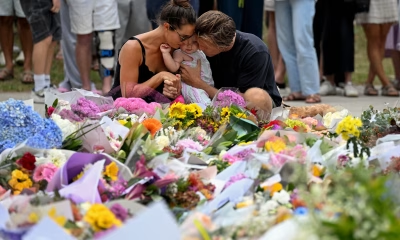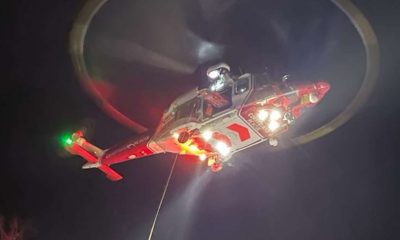Politics
Russia Report flays government inaction

AFTER nine months of delay, which had nothing whatsoever to do with the embarrassment its content could have caused to successive Conservative Prime Ministers, the long-awaited Intelligence Services Committee report into Russian interference in the UK’s democratic processes was published on Tuesday, July 21.
The Committee delivered its report to the UK Government last autumn, well before the announcement of December’s General Election. However, the Government delayed its release indefinitely.
PUBLICATION AFTER GRAYLING FAILED AGAIN
The report’s publication on Tuesday followed an attempt by Number 10 Downing Street to rig the election of a new Chair for the Committee. Former Attorney-General Dominic Grieve QC stood down at the last election.
Last week, Number 10 attempted to parachute in a patsy to replace Dominic Grieve, former Cabinet Minister Chris Grayling, hoping to kick the report even further into the long grass. The effort failed comically when the Government’s nominee lost a rigged election. The new Chair, Julian Lewis, a Conservative MP, had the Conservative whip withdrawn from him as a result of ‘disloyalty’ to Number 10.
The attempt to thwart the report’s publication – or to neuter its already heavily redacted form – rebounded badly on Boris Johnson and draws attention to some of the report’s more uncomfortable conclusions regarding the extent of Russian infiltration into the UK’s public life.
The report is a scathing assessment of the UK Government’s continued failure to either adequately assess or even investigate how Russia, or those associated with the Putin regime, attempted to influence the UK electorate.
KEY FINDINGS
• Russian influence in the UK is the new normal. Successive Governments have welcomed the oligarchs and their money with open arms, providing them with a means of recycling illicit finance through the London ‘laundromat’, and connections at the highest levels with access to UK companies and political figures.• This has led to a growth industry of ‘enablers’ including lawyers, accountants, and estate agents who are – wittingly or unwittingly – de facto agents of the Russian state.
• It clearly demonstrates the inherent tension between the Government’s prosperity agenda and the need to protect national security. While we cannot now shut the stable door, greater powers and transparency are needed urgently.
• UK is clearly a target for Russian disinformation. While the mechanics of our paper-based voting system are largely sound, we cannot be complacent about a hostile state taking deliberate action to influence our democratic processes.
• Yet the defence of those democratic processes has appeared something of a ‘hot potato’, with no one organisation considering itself to be in the lead, or apparently willing to conduct an assessment of such interference. This must change.
• Social media companies must take action and remove covert hostile state material: Government must ‘name and shame’ those who fail to act.
• We need other countries to step up with the UK and attach a cost to Putin’s actions. [The Russian state’s coordination of the Novichok attack in] Salisbury must not be allowed to become the high watermark in international unity over the Russia threat.
Several issues addressed in the published version of the Russia Report are covered in more depth in a Classified Annex which is unavailable for public scrutiny.
GOVERNMENT DIDN’T RECOGNISE THREAT
A statement by the Committee said: “There have been widespread allegations that Russia sought to influence voters in the 2016 referendum on the UK’s membership of the EU: studies have pointed to the preponderance of pro-Brexit or anti-EU stories on RT and Sputnik, and the use of ‘bots’ and ‘trolls’, as evidence.
“The actual impact of such attempts on the result itself would be difficult – if not impossible – to prove. However what is clear is that the Government was slow to recognise the existence of the threat – only understanding it after the ‘hack and leak’ operation against the Democratic National Committee, when it should have been seen as early as 2014 (when Russia attempted to interfere in the Scottish Independence Referendum). As a result, the Government did not take action to protect the UK’s process in 2016.”
“The Committee has not been provided with any post-referendum assessment – in stark contrast to the US response to reports of interference in the 2016 presidential election. In our view, there must be an analogous assessment of Russian interference in the EU referendum.”
In a press conference following the report’s publication, Chair of the Intelligence Services Committee, Julian Lewis recused himself from commenting on the report. He told media as he was not a member of the committee when it drew up the report, he would leave answers on its contents to two MPs who were members of it at the relevant time.
NO EFFORT TO INVESTIGATE
Members of the Intelligence Select Committee (ISC) said there was ‘no evidence’ that Russia sought to influence the 2016 Brexit referendum, but only because the government did not try to find out if it had.
One member, Stewart Hosie MP (SNP) said: “There has been no assessment of Russian interference in the EU referendum and this goes back to nobody wanting to touch the issue with a 10-foot pole.
“The UK Government has actively avoided seeking evidence as to whether Russia interfered.”
The report notes: “For example, it was widely reported shortly after the Scottish referendum that Russian election observers had suggested that there were irregularities in the conduct of the vote, and this position was widely pushed by Russian state media.
“We understand that HMG viewed this as being primarily aimed at discrediting the UK in the eyes of a domestic Russian audience.”
Russian propaganda was widely shared and effective in Scotland.
Over 87,000 people signed a petition demanding a re-vote following the Russian allegations of electoral fraud.
Kevan Jones, a former Labour defence minister, said all the evidence of Russian interference was there from the Scottish referendum
He said: “Short of a large van outside Downing Street, with a billboard on it saying, ’this is what was going on’, what more did the government need? Why was the decision taken not to look at the (Brexit) referendum?”
He said the Government lied about why Russia report couldn’t be published before the election.
Commenting on the report the Shadow Home Secretary, Kit Thomas-Symonds, said: “The report outlines a litany of hostile state activity, from cyber warfare, interfering in democratic processes, acts of violence on UK soil and illicit finance. On every level, the government’s response does not appear to be equal to the threat. While on key issues it is clear that there is no overall strategic response to this challenge – little wonder the government has been so keen to delay the publication.”
MONEY TALKS REALITY BITES
The Committee’s reports and its members’ comments leave little doubt that Theresa May actively declined to start an investigation into allegations of foreign interference in the 2016 Referendum campaign.
In a section about the referendum, the report says: “The written evidence provided to us appeared to suggest that HMG [Her Majesty’s government] had not seen or sought evidence of successful interference in UK democratic processes or any activity that has had a material impact on an election, for example influencing results.”
While any number of conspiracy theories swirl about her failure to at least ask GCHQ, MI6 or MI5 to look into the allegations, it is entirely likely that Mrs May’s decision was based in cold, hard realpolitik.
If an investigation had uncovered evidence of Russian interference, the consequences for the UK potentially outweighed any effect the interference had on the Referendum’s outcome.
Brexit hardliners within her party and fringe figures such as Nigel Farage would never have accepted any finding which undermined the legitimacy of the Referendum result. The result could have been political chaos and – quite possibly – civil disruption.
An investigation would also have provided an impetus for defeated Remain campaigners to challenge the result through the Courts.
The scope for revelations about prominent Conservative figures’ connection with Russia and Russian money might have caused severe embarrassment at a time the Government was trying to set the Brexit agenda.
For example, Alexander Termerko is a former senior apparatchik in the Russian Ministry of Defence. He is among the Conservative’s largest donors (£1.3m over seven years). Born in Ukraine when it was part of the former Soviet Union, Mr Termerko rose to prominence during the Yeltsin era. He became involved in manufacturing arms and an oil tycoon under Vladimir Putin. He fled to the UK when threatened with a politically-motivated prosecution. Mr Termerko has donated generously to several Conservative MPs, including Carmarthen West and South Pembrokeshire MP Simon Hart.
None of the above excuses the failure to investigate but, as one possible reading of events, it offers a compelling rationale for Mrs May’s and Mr Johnson’s reluctance to look too deeply into any foreign interference in the Brexit Referendum.
News
UK government boosts Port Talbot transition fund with extra £22m support

AN EXTRA £22 million in UK Government funding has been announced to support workers and businesses affected by Tata Steel’s transition at Port Talbot, taking the total community support package to £122 million.
The funding uplift means the Tata Steel / Port Talbot Transition Board fund now stands at £102 million from the UK Government, alongside a further £20 million contributed by Tata Steel. Ministers say the additional money could help support up to 1,000 more jobs across the local economy.
Since July 2024, the Transition Board has already allocated £80 million to the Port Talbot area, funding thousands of training courses for individuals and helping nearly 200 businesses to start, expand, invest in new equipment and move into new markets.
The UK Government said the rapid deployment of the funding has helped prevent an increase in unemployment benefit claims during Tata Steel’s shift towards greener steelmaking.
Following strong demand for support, a further £22 million has now been allocated, extending the availability of Supply Chain, Business Start-Up, Resilience and Growth funding into 2026. The announcement was made on Thursday (Dec 18).
Secretary of State for Wales Jo Stevens said the government was determined to continue backing the community through the transition.
She said: “This government has acted decisively to support workers and businesses in Port Talbot, allocating the entire £80 million in initial funding quickly into the community to ensure that whoever needed support could access it.
“Grants have been delivered swiftly to meet the needs of local people, businesses and communities, and there is evidence that our approach is working. But we want to make sure that as many people as possible have continued access to support with the extra £22 million for local businesses into the new year.
“We said we would back workers and businesses affected by the transition at Port Talbot and are delivering on that promise.
“It remains a difficult time for Tata Steel workers, their families and the community, but we will continue to support them.”
Ms Stevens announced the funding increase during a visit to Port Talbot-based engineering firm JES Group, which has received Transition Board support. She also toured the JES Academy, which is providing training for dozens of former and current steelworkers.
Justin Johnson, Director of JES Group and The Skills Academy, welcomed the announcement.
He said: “I want to express our gratitude to the UK Government for establishing the original Transition Fund and for now having the foresight to increase the level of support at such a critical moment.
“This uplift will make a significant difference to supply-chain companies like ours. As Tata Steel transitions to electric arc furnace steelmaking, businesses like JES must transition alongside it, while also diversifying into new sectors to reduce reliance on what was once our core work.
“We believe the history of steelmaking in Port Talbot is far from over and that a brighter, greener future lies ahead, but while that future takes shape, diversification is essential.
“The journey has not been easy, and it is far from over, but this additional support creates real opportunities for stability and growth. I also want to recognise Business Wales and Neath Port Talbot Council’s economic development team for their guidance and practical assistance.”
The Transition Board was established to protect jobs and the local economy during Tata Steel’s move to greener steel production. Information on applying for support is available via the Tata Steel Transition Information Hub.
The UK Government has also committed £2.5 billion to rebuild and decarbonise the UK steel industry, with a national Steel Strategy due to be published in early 2026. This includes £500 million already allocated to Tata Steel for the electric arc furnace now under construction at Port Talbot.
Politics
Debate over single Welsh police force reignited amid merger reports
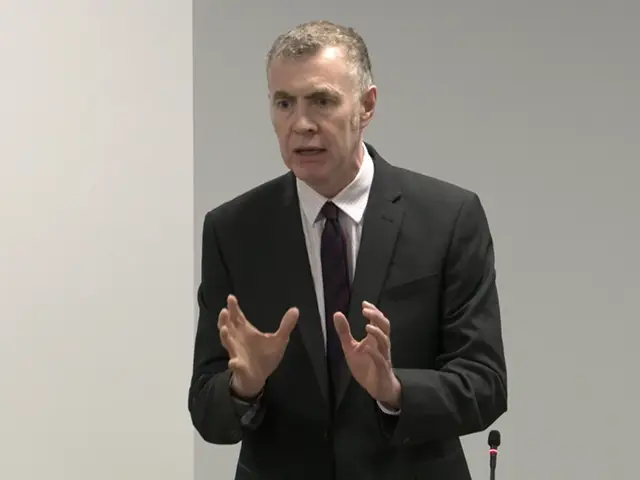
THE PROSPECT of merging Wales’ four police forces into a single mega-force has resurfaced, as politicians scrambled to respond to reports of an overhaul of policing in the new year.
Adam Price raised reports that Home Secretary Shabana Mahmood is considering cutting the number of police forces in Wales and England from 43 to 12 through mergers.
The former Plaid Cymru leader told Senedd members the reforms would represent the “biggest upheaval” of police forces since the 1960s.
Warning the Welsh Government was not consulted on plans to scrap police and crime commissioners, he said: “No change should happen – a merger for example – without full Senedd scrutiny and a Welsh democratic mandate.”
Mr Price suggested an all-Wales model – merging the four police forces, similar to what happened in Scotland in 2013 – could have benefits but said governance would be critical.
During topical questions on Wednesday December 17, he argued a single police force would need to be accountable to the Senedd, with powers over policing devolved to Wales.
The MP-turned-Senedd member urged the UK Government to rule out any cross-border mergers involving a Welsh force being absorbed into an English one.
Responding for the Welsh Government, Jane Hutt described the widespread media reports as “unhelpful, unconfirmed speculation”. But she confirmed the UK Government is expected to publish a white paper in the new year.

She committed to engaging with Sarah Jones, the UK policing minister, who was attending a meeting of the Welsh policing partnership board the next day (December 18).
Ms Hutt told the Senedd she has been assured the UK Government recognises the differing governance arrangements between Wales and England.
Conservative Altaf Hussain urged the Welsh Government to take the opportunity to abandon calls for devolving powers over policing and justice to Wales.
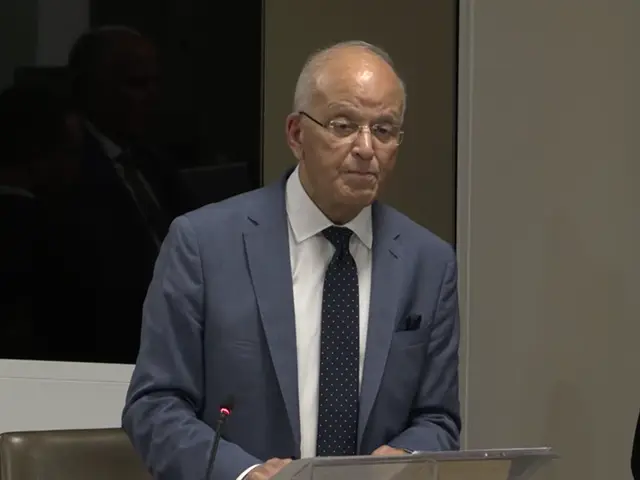
Dr Hussain said: “There is merit in having a single unified police force for England and Wales – if only to tackle dysfunctional forces like Gwent Police, who have allowed a culture of misogyny to persist amongst their officers and leaders.”
Ms Hutt suggested reforms would present a natural opportunity to consider the role of the Welsh Government and Senedd in terms of accountability for policing in Wales. She said the focus is on a phased approach, beginning with powers over youth justice and probation.
Jane Dodds, the Liberal Democrats’ leader in Wales, called for a clear timetable for the devolution of youth justice and probation. “We need more devolved powers,” she said.
Labour’s Alun Davies agreed, accusing UK ministers of putting Ms Hutt in an “invidious position” of responding to hearsay about a fundamental public service. He said: “This is the second time in two months… this simply isn’t good enough.”
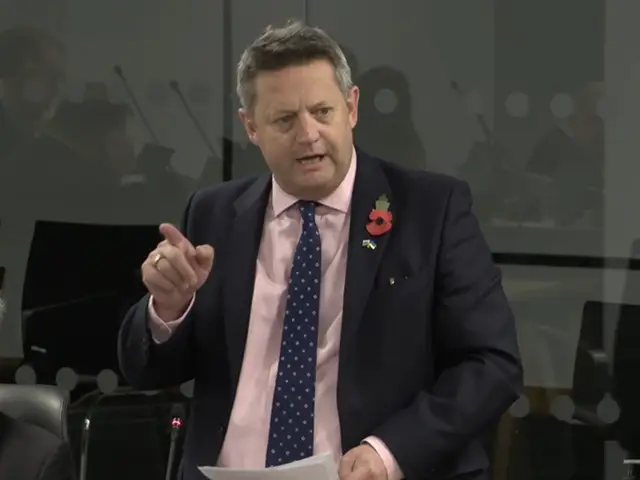
Mr Davies criticised Labour colleagues in the UK Government for “clearly” not recognising calls for policing to be devolved and biting the bullet. “That needs to happen,” he said, adding: “It needs to happen as soon as possible.”
The former minister told the Senedd: “We certainly don’t want to see the nationalisation of policing that’s just been proposed by the Conservatives. We’ve never had a national police force in the UK – we don’t want one today.”
It was “groundhog day” for the Conservatives’ Mark Isherwood who reminded the chamber of the then-Assembly’s review of policing in 2005 when mergers were floated previously.
He said: “To recognise the regional cultural and geographical differences that exist within Wales, all agreed that Wales must be policed in regions.”
But Rhys ab Owen, who sits as an independent, argued Wales’ four police forces “make no sense at all” with Police Scotland showing a unified force can “flourish”.
Politics
Support for £27bn spending plans amid uneasy compromise
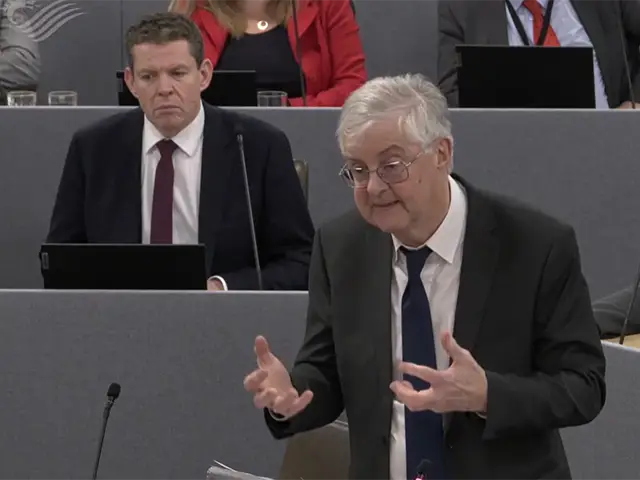
THE SENEDD has backed the Welsh Government’s “imperfect” £27bn draft budget following a late deal to prevent a “catastrophe” for public finances.
The 2026/27 spending plans passed with 24 in favour, 13 against and Plaid Cymru’s 13 members abstaining as part of a near-£300m deal with the Welsh Government. Ministers will unveil the final budget in the new year before a further crunch vote on January 27.
But scrutiny committees warned inflation based on “outdated” forecasts could see real-terms cuts, criticising a lack of preventative spending and “business as usual” funding for culture.
Leading scrutiny on December 16, Peredur Owen Griffiths, who chairs the Senedd’s finance committee, sounded the alarm about inflation figures underpinning the draft budget.
He warned that while health and councils would receive uplifts, these were based on forecasts from March that are already outdated.
Calling on ministers to publish an assessment of inflationary pressures alongside the final budget, he said: “Some areas face real-terms cuts unless funding increases.”
The Plaid Cymru politician also urged the Welsh Government to develop a plan to close a “persistent productivity gap” compared with the UK average.
Peter Fox, the Conservative chair of the health committee, said the NHS initially faced a “historically low” uplift of only 0.5% in real terms before the deal was struck.
Mr Fox made a compelling case for extra funding for “vital” palliative and end-of-life care services as well as more money for respite care for unpaid carers.

While welcoming an extra £180m for health and social care, he warned of a system buckling under pressures in relation to waiting times, staffing and an ageing estate.
“It’s essential to balance these short-term demands with longer-term transformation,” he said, calling for assurances funding for prevention is not lost to immediate firefighting.
This sentiment was echoed by Delyth Jewell, the Plaid Cymru chair of the culture committee, who lamented that the arts sector faces another year of “more of the same” real-terms cuts.
She pointed out that spending on culture in Wales ranks among the lowest in Europe.
Llŷr Gruffydd, chair of the climate change committee, raised concerns about infrastructure, pointing to the transport secretary’s admission that Wales has the UK’s oldest bus fleet.
Mr Gruffydd also criticised cuts to biodiversity, noting a 3.9% fall in day-to-day resource spending and an 8% reduction in longer-term capital funding amid a “nature emergency”.
Meanwhile, John Griffiths, who chairs the local government committee, welcomed a minimum 4% increase for councils but warned “frustrations continue” over the funding formula, which relies on data from the 1991 census.

He said: “We remain concerned that local authorities are still in a vulnerable position and continue to face the prospect of council tax rises, service cuts and job losses.”
His Labour colleague Buffy Williams, chair of the education committee, warned ministers failed to publish a specific children’s rights impact assessment for the 12th year in a row.
Heledd Fychan, Plaid Cymru’s shadow finance secretary, defended her party’s decision to abstain, arguing rejecting the budget could have led to thousands of job losses, council tax rises of 22% and the “very real prospect of bankruptcy for some of our councils”.
“This was a budget that, if it was left unamended, would have proved catastrophic for Wales,” she said, dismissing suggestions Plaid Cymru was “propping up” Labour.
But her Conservative counterpart Sam Rowlands criticised the budget as a failure that “does nothing” to get Wales’ economy moving nor get to grips with long NHS waiting lists.
Reform UK’s Laura Anne Jones added that the “cosy arrangement” between Labour and “their little helpers” Plaid Cymru “smacks of a government that has run out of ideas.”
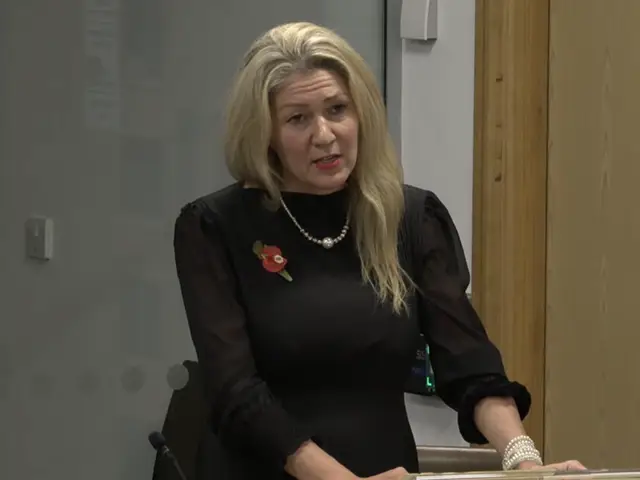
Closing the debate, finance secretary Mark Drakeford insisted the budget deal was “good news for Welsh citizens” because the “catastrophe” of a failed budget has been avoided.
“We have secured that more ambitious set of outcomes,” he said, pointing to the £180m extra for health and social care as well as a £112m for councils as part of the deal.
-

 Crime14 hours ago
Crime14 hours agoMilford Haven man jailed after drunken attack on partner and police officers
-

 News4 days ago
News4 days agoDyfed-Powys Police launch major investigation after triple fatal crash
-

 Crime2 days ago
Crime2 days agoMan sent to Crown Court over historic indecent assault allegations
-

 Crime1 day ago
Crime1 day agoMan charged with months of coercive control and assaults
-

 Crime4 days ago
Crime4 days agoMan spared jail after baseball bat incident in Milford Haven
-

 Crime12 hours ago
Crime12 hours agoTeenager charged following rape allegation at Saundersfoot nightclub
-

 Crime2 days ago
Crime2 days agoMilford Haven man admits multiple offences after A477 incident
-

 Education7 days ago
Education7 days agoTeaching assistant struck off after asking pupil for photos of her body
















